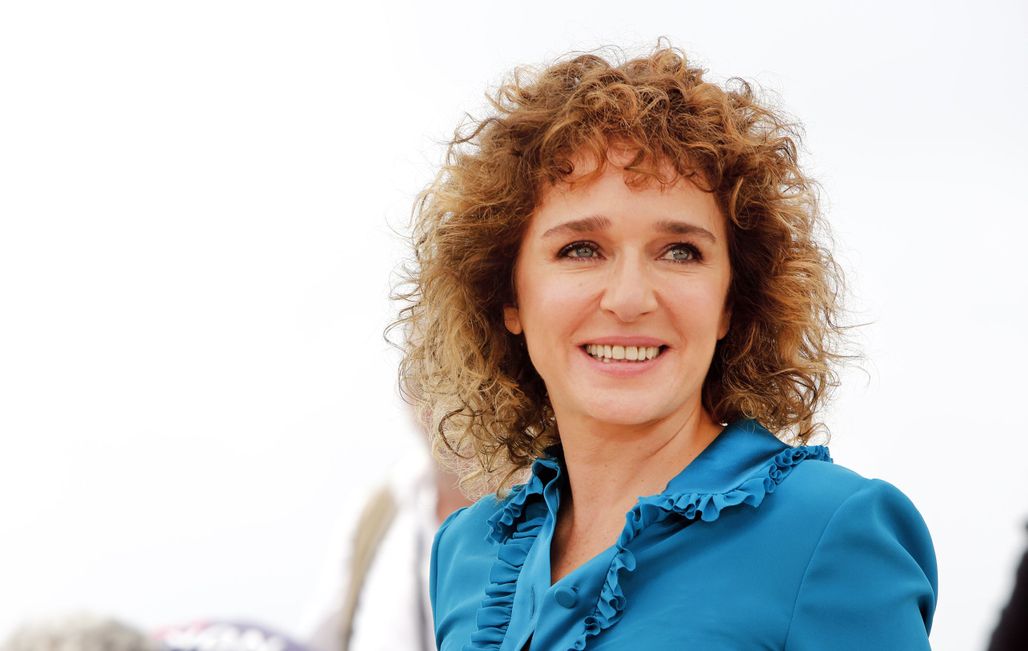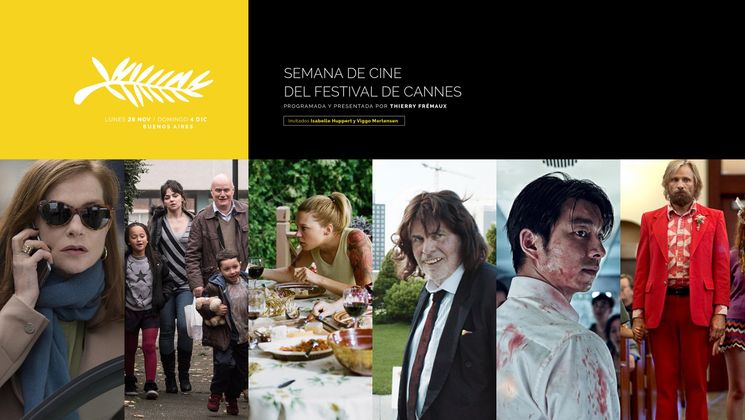
Interview with Valeria Golino, member of the Feature Films Jury

For a decade, she was the most international actress in Italian cinema, notably appearing alongside Tom Cruise (Rain Man, 1988) and Nicolas Cage (Leaving Las Vegas, 1995), and being directed by Sean Penn (The Indian Runner, 1991). In 2013, Valeria Golino moved behind the camera with Honey (Miele), a masterful feature film about euthanasia. The blue-eyed beauty and member of the Feature Films Jury discusses her cinematic background.
What place does the Festival de Cannes hold in your career?
I experienced my greatest emotional moment, both personally and professionally, in 2013 when I presented Honey (Miele), my first film, at Un Certain Regard. It was an incredibly moving experience. I was so tense that I didn't manage to enjoy myself. Being at the festival was extremely useful for the film and for my career. Cannes is always very important for filmmakers.
Let's go back into the past: cinema came to you…
Being an actress was indeed not a dream, and it came to me by chance. I was 16 when I acted in my first film, directed by Lina Wertmüller. At the time, I was in high school and my sole ambition was to go to university. I had also done some modelling since I was 14. In Rome, I met Lina, who was a friend of my aunt. She was looking for a teenager to play Ugo Toniazzi's daughter in her new feature film. I did some tests for her without really thinking about it, and a few months later I shot the film. That's when I caught the acting bug. So everything happened before I had the chance to dream about it.
What did you know about being an actress?
Nothing. But I really loved films. I grew up in a family who loved cinema. We spent a lot of time watching films and I had formed an opinion on the type of film I liked. When I was younger, in the 1970s, American cinema was at its peak and I loved directors like Martin Scorsese and Sidnet Lumet. Robert De Niro, Al Pacino, and Dustin Hoffmann were my idols. I loved American films which were socially minded, and quality genre films. Plus, Italy still had great directors working: Antonioni, Fellini, Bellocchio, Ferreri…our cinema was full of extremely talented creators.
Your rise to fame was immediate, with a Best Actress award in Venice at 21 years old. Is it hard to manage such sudden success?
No! For an actress, the hardest thing to manage is when there is no success. It's a gift in life to be young and appreciated in this job. You don't need to work hard to prove your worth in an industry it is difficult to break into. So I was lucky. The Best Actress award was extremely important because it launched my career. It's easier to be successful when you're young than after several years of experience.
Apart from if, like you, you become a director…
I became a director to stay young and to reinvent myself. It's hard to last in this job, like I did for thirty years. It's hard to keep your spirits up with all the pitfalls, and to stay on a level which is worthy and which maintains your enthusiasm.
“Berlusconi’s television did a lot of harm. He numbed our brains. But Italian cinema continues to exist.”
Then came your American period, initiated by Rain Man in particular. What are your memories from that time?
Over ten years, I shot sixteen or seventeen films. These experiences trained me in a different discipline that I didn't naturally have within myself. I learnt a lot in America as I had the chance to observe great actors at work, and a constantly evolving cinematic machine. I also learnt to act in another language. In Italy, I based my acting on the subconscious and naturalness, not by working on my characters in such an intense way. That said, I got the roles I'm most proud of in Italy.
What did you learn while shooting Honey (Miele)?
Honey (Miele) was the most complete experience of my life. I put my heart and soul into the film. It taught me to approach my work in a different, more head-on way. An actress can be like a butterfly, flying from flower to flower. But a director has to remain like a tree.
What do you think of current Italian cinema?
There is a lot of movement, resurgence, and talent. Our industry is truly chaotic, with laws which aren't focussed enough on films. The problem is that Italians are no longer interested in cinema, unlike you, the French. In Italy, cinemas offer films that have already been broadcast on television. It's a cultural problem. Berlusconi's television did a lot of harm. He numbed our brains. But Italian cinema continues to exist.
What genre of film moves you?
I don't prefer any genre in particular, but I like cinema which is alive, when it's not another derivative of television. I like cinema which has a point of view, which is curious, searching for a form in which to wrap its content. When it's not afraid to be different. And those characteristics can influence all genres and all styles.

